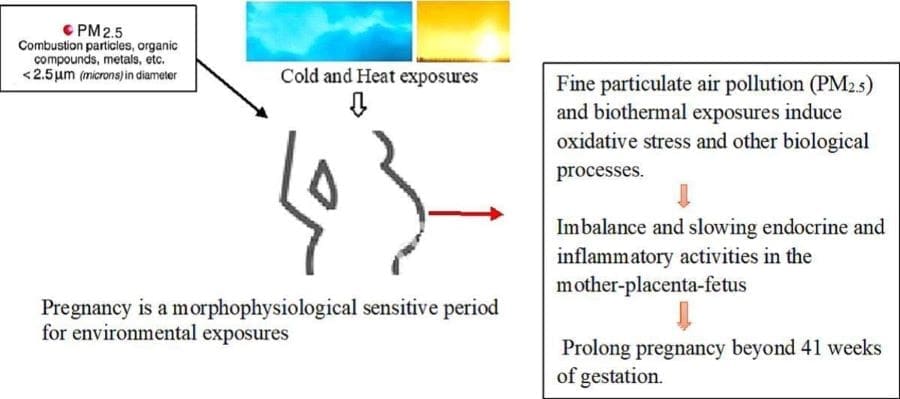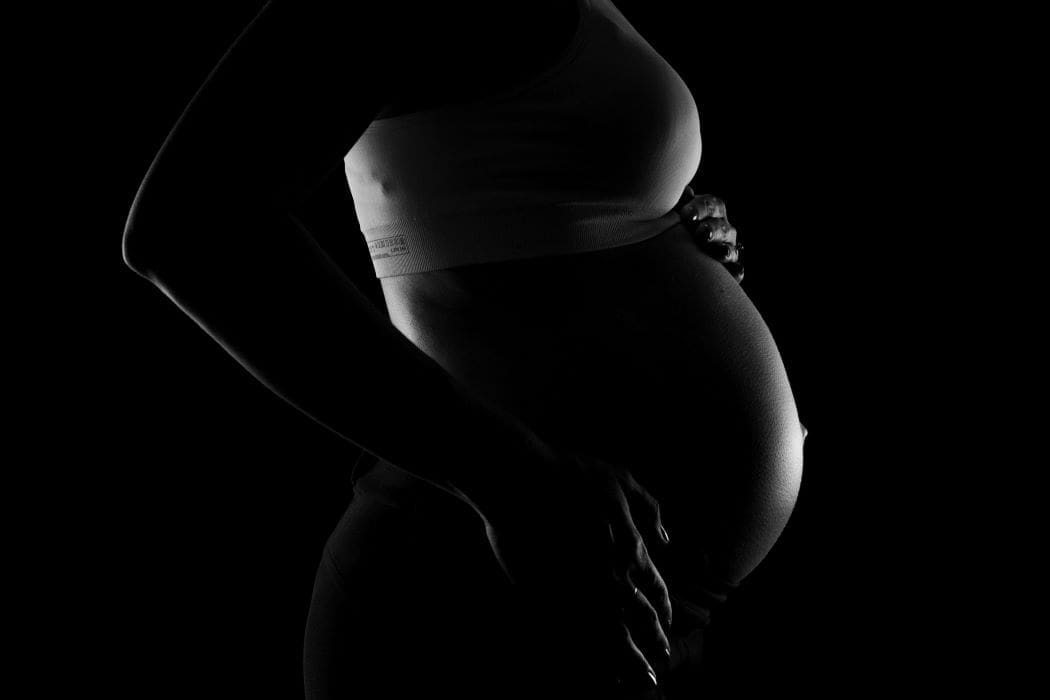Summary:
New research from Curtin University suggests that exposure to air pollution and extreme temperatures during pregnancy may increase the risk of prolonged pregnancy.
The study, published in Urban Climate, analyzed nearly 400,000 births in Western Australia and found that higher exposure to fine particulate matter (PM2.5) and biothermal stress — factors influenced by climate change — was associated with pregnancies extending beyond 41 weeks. Lead author Dr. Sylvester Dodzi Nyadanu noted that while environmental factors have long been linked to preterm birth, their role in prolonged pregnancies has been largely overlooked.
The study identified increased risks for first-time mothers, women over 35, those in urban areas, and pregnancies with complications. Prolonged pregnancies can lead to medical interventions, birth complications, and emotional strain for families. With climate change contributing to worsening air quality and more frequent extreme weather, researchers stress the importance of recognizing climate-related risks in maternal health. The findings highlight the need for stronger air quality regulations and targeted public health measures to protect expectant mothers and newborns.

Born too late? Climate change and pollution may be delaying births
New Curtin University research has found exposure to outdoor air pollution and extreme temperatures during pregnancy may increase the risk of prolonged pregnancy, offering new insights into the impact of climate change on maternal health.
The study analysed data from nearly 400,000 births in Western Australia and found that higher exposure to fine particulate air pollution (PM2.5) and biothermal stress (a measure that combines air temperature, radiant temperature, relative humidity, wind speed, and human physiology) was associated with pregnancies lasting beyond 41 weeks.
Lead author Dr Sylvester Dodzi Nyadanu from Curtin’s School of Population Health said while climate exposure has long been linked to preterm births, this is the first study to examine its impact on prolonged pregnancies.
“We know that being ‘born too soon’ — preterm birth — has well-documented health risks, but little attention has been given to the risks associated with being ‘born too late’,” Dr Nyadanu said.
“Our findings show that exposure to air pollution and biothermal stress during pregnancy increases the likelihood of prolonged pregnancies, particularly among mothers over 35 years old, first-time mothers, those living in urban areas, and those with complicated pregnancies.
“Environmental stressors, including climate-related exposures during pregnancy, have been associated with maternal stress response and subsequent disruptions in endocrine and inflammatory activities, which increase towards the end of pregnancy. This can either shorten gestation, leading to preterm birth, or lengthen gestation, resulting in prolonged pregnancy in some cases.”
Dr Nyadanu said prolonged pregnancy can have serious health implications for both mother and baby, including the need for medical interventions such as labour induction or caesarean sections, increased risk of stillbirth, birth complications, child mortality, early childhood behavioural and emotional problems, and emotional impacts on families.
“With climate change driving more frequent extreme weather events and worsening air quality, it is essential that we recognise the potential impacts on maternal and child health,” Dr Nyadanu said.
“Healthcare providers, policymakers and pregnant women — particularly those in vulnerable groups — must consider climate-related exposures when assessing pregnancy risks and planning interventions.
“This study highlights the need for targeted policies and preventative measures to reduce climate-related health risks, including better air quality regulations and public health initiatives aimed at protecting expectant mothers and children from extreme climatic conditions.”
Journal Reference:
Sylvester Dodzi Nyadanu, Gizachew A. Tessema, Jennifer Dunne, Aditi Roy, Gavin Pereira, ‘Maternal climate-related exposures and prolonged pregnancy: Findings from a statewide population-based cohort study in Western Australia’, Urban Climate 59, 102316 (2025). DOI: 10.1016/j.uclim.2025.102316
Article Source:
Press Release/Material by Lucien Wilkinson | Curtin University
Featured image credit: João Paulo de Souza Oliveira | Pexels




